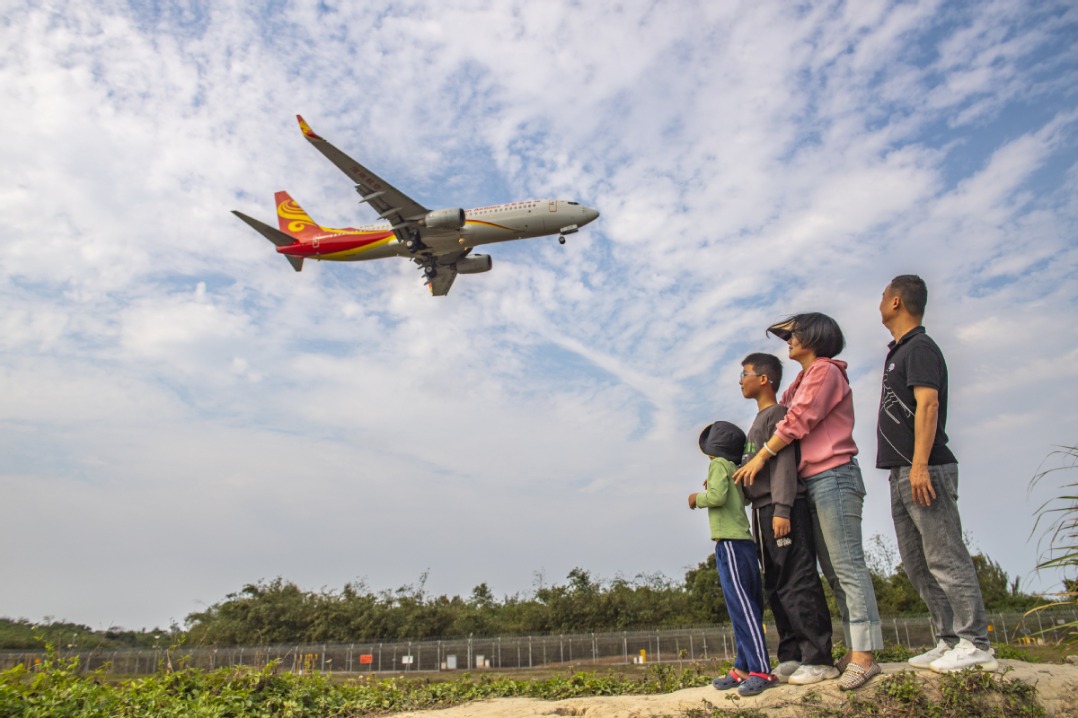Onus on US to rein in Israel's aggression: China Daily editorial

After nearly 11 months of bloodshed in Gaza, it is heartening to see both Hamas and Israel engaged in the cease-fire negotiations in Cairo that began on Thursday.
Although the high-level talks mediated by Egypt, Qatar and the United States ended on Sunday without a final agreement, they were described as "constructive" as all parties were said to be working to "reach a final and implementable agreement", and the exchanges are continuing at the Egyptian capital at lower levels in the coming days in an effort to bridge the remaining gaps.
Although Iran is not a party to the talks, it has made a tremendous contribution to the unfolding of the Cairo talks for an early cease-fire in Gaza by exercising considerable restraint. It has refrained from taking revenge for the assassination of Ismail Haniyeh, the political leader of Hamas, in Teheran on July 31, which was widely suspected of being carried out by Israel.
After Haniyeh's death, in anticipation of Iran's retaliation against its closest ally in the Middle East that it has unconditionally been supporting with arms, intelligence and funding throughout the Gaza conflict, the US recently deployed at least two aircraft carrier strike groups along with other forces to the region. While Israel, on its part, has been carrying out large-scale military and civil preparations, indicating it expects a significant retaliation by Iran.
That Iran has so far not taken any action does not mean it will let bygones be bygones. The only reason is that Teheran would like to see the humanitarian crisis in Gaza end at an early date. And many countries, including China, have tried their best to persuade Teheran to bear the bigger picture in mind, setting the table for the Cairo talks.
That being said, all stakeholders to the talks, particularly the US, must make sincere efforts to make the talks fruitful. Even if it is only a temporary cease-fire that is agreed, it will provide the Palestinians in Gaza with the first breathing space since the Oct 7 Hamas attacks on Israel that triggered the fighting, and a window for other countries to mediate the situation.
Over the past nearly 10 months, more than 40,000 Palestinians have been killed in the Gaza Strip, which is 41 kilometers long and from six to 12 km wide, with many of them women and children, according to local Palestinian sources. The 2.3 million?Palestinians?that are still trapped in the enclave are in a de facto state of famine due to Israel's harsh control of the region. Many rights groups have accused Israel of intentionally weaponizing hunger.
Yet the most intensive exchanges of fire between Israel and Hezbollah in months in the northern border region between Israel and Lebanon on Sunday showed how easy it would be for the ongoing talks to be derailed. The fighting was triggered by Israel's "preemptive" air strikes on Hezbollah forces in southern Lebanon after it detected what it said was the militant group's preparation to attack northern Israel.
UN Secretary-General Antonio Guterres was "deeply concerned" by the escalation and called on the two parties to immediately cease hostilities, UN spokesperson Stephane Dujarric said in a statement.
A spokesman for the US National Security Council, Sean Savett, said US President Joe Biden was "closely monitoring" the events in Israel and Lebanon and that he has been engaged with his national security team throughout the evening. "At his direction, senior US officials have been communicating continuously with their Israeli counterparts," Savett said. "We will keep supporting Israel's right to defend itself, and we will keep working for regional stability."
With its Chairman of the Joint Chiefs of Staff Charles Brown visiting Israel, Egypt and Jordan this week, the Biden administration should take more concrete actions to control its ally's aggressiveness at this crucial juncture. The sooner Gaza is freed from the US' partisan politics, the earlier the on-and-off cease-fire talks will yield concrete results.


































